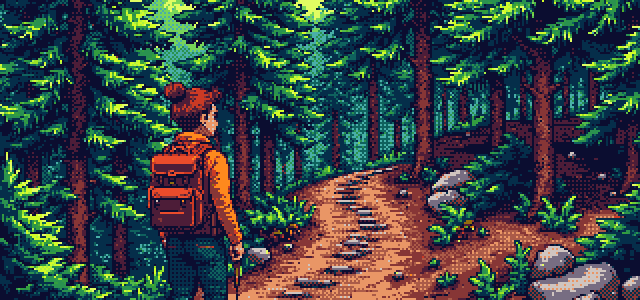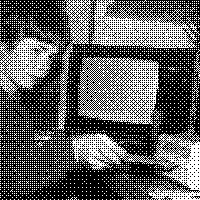Another turning point, a fork stuck in the road ...
Life has a way of confronting us with choices we never saw coming. Like Green Day sings in Good Riddance (Time of Your Life):
These turning points—unexpected and uninvited—force us to stop and stare into the unknown. And just when we think we can ignore them, "time grabs you by the wrist, directs you where to go." It’s as though the road itself conspires to pull us forward, demanding we choose. In these moments, fear wrestles with curiosity, stirring that strange cocktail of dread and excitement we feel standing on the precipice of change.
The Tyranny of the Safe Choice
If Dostoyevsky were here, he might call the desire for safety a quiet form of slavery. In Notes from Underground, he speaks of man’s paradoxical need to both rebel and obey, to both seek freedom and remain shackled by his own fear. The prehistoric brain whispers in the dark:
“Don’t move. Don’t risk it. Don’t think for a second that the world beyond the bend is worth the danger.”
And so, we obey. We stay in our routines, our jobs, our habits—even when they drain the very marrow from our bones. We rationalize: "At least this is familiar. At least here, I know who I am." But do we? Or is this comfort merely a cage, crafted by the same primal instincts that once kept us safe from saber-toothed tigers but now keep us from chasing the life we crave?
Fear and Curiosity: Bedfellows of the Soul
Fear is an uninvited guest, but curiosity is its mischievous twin. Where fear sees darkness, curiosity sees stars. Where fear warns of failure, curiosity whispers, "What if it’s beautiful?"
Bukowski, in his drunken brilliance, might tell us to run headlong into that bend. “What matters most,” he’d growl, cigarette in hand, “is how well you walk through the fire.” And maybe that’s it – this bend in the road isn’t just a turn; it’s a test of fire. A chance to burn away the illusions of permanence and control that keep us rooted.
 To live is to court risk. It’s standing at the edge of the bend with shaking hands and saying, “I’m going anyway.”
To live is to court risk. It’s standing at the edge of the bend with shaking hands and saying, “I’m going anyway.”
The Cruel, Necessary Beauty of the Unknown
The bends in the road are not just obstacles—they are invitations. They demand our attention, forcing us to reckon with the fragility of the lives we’ve built.
Dostoyevsky might remind us of Crime and Punishment’s Raskolnikov, whose existential torment is rooted in the unbearable weight of decision. But unlike Raskolnikov, we are not condemned to inaction or ruin. The bend in the road is not a punishment; it’s a blessing disguised as terror.
Every turn is a chance to shatter the narrative we’ve clung to, to rewrite the story, to leave behind the shadows of “what if” and step into the blinding light of possibility.
The Courage to Step Forward
It doesn’t take much to stay still. In fact, it’s the easiest thing in the world. Bukowski might spit at the thought, telling us to fight. Not against the bend, but against the inertia within ourselves. “The gods wait to delight in you,” he wrote. But they only wait so long.
Courage isn’t about being fearless. It’s about dragging your fear by the collar, feeling its weight in your chest, and moving anyway. It’s about taking that bend, even if the prehistoric brain screams bloody murder, because something in you knows there’s more to this road than what you can see. Closing Thoughts: The Road Keeps Bending
Life’s road is never straight. And that’s the beauty of it. Dostoyevsky might tell us that suffering refines the soul, while Bukowski would roll his eyes and order another drink, muttering that the bends are all we have.
